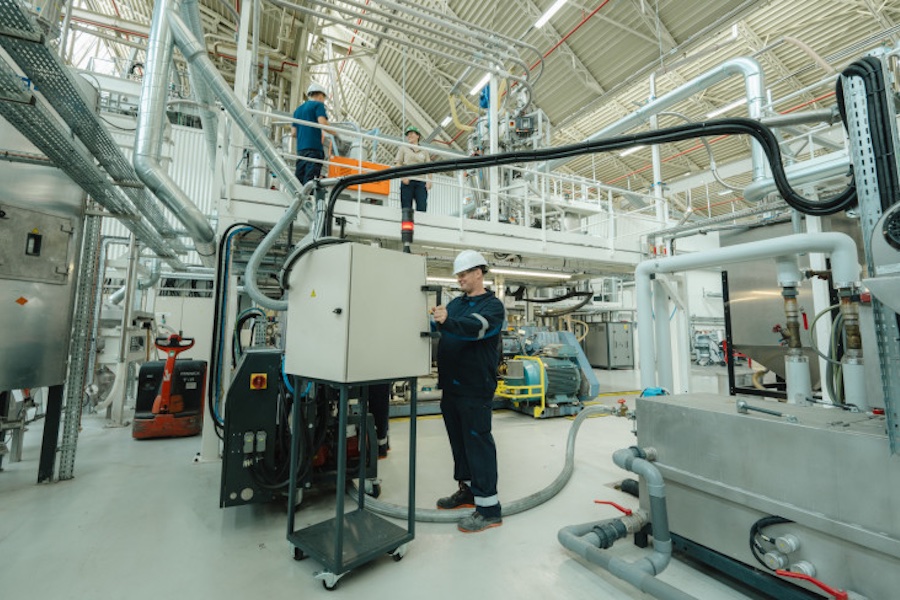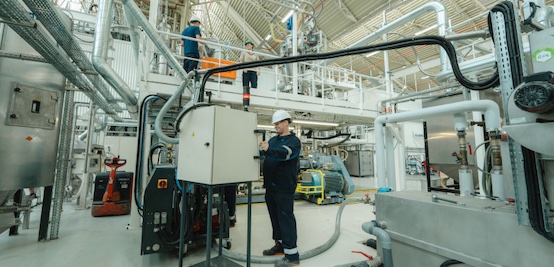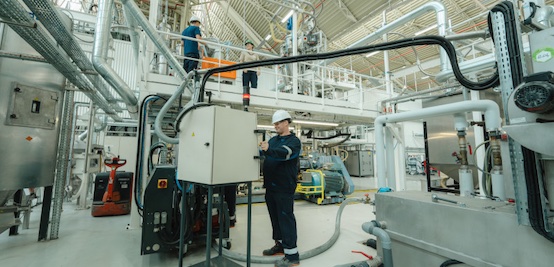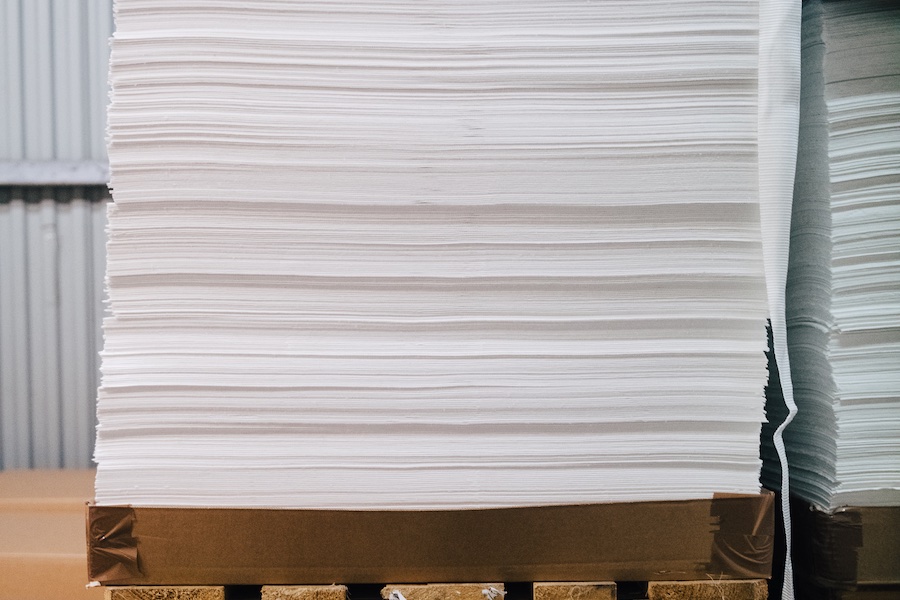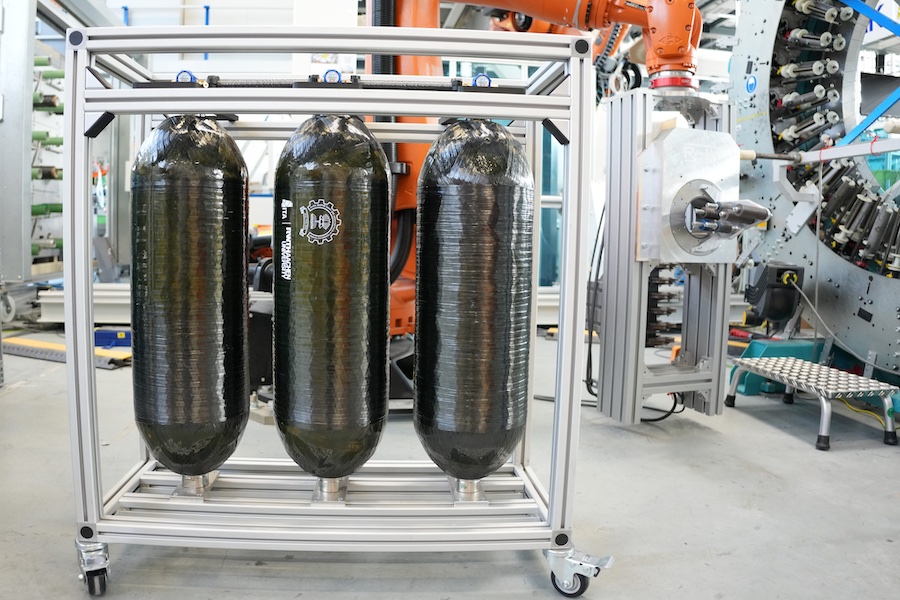#Recycling / Circular Economy
CARBIOS and Nouvelles Fibres Textiles cooperate to develop the French polyester textile recycling industry
The polyester textiles supplied will come from used or end-of-life textiles prepared in France by Nouvelles Fibres Textiles for recycling using CARBIOS' enzymatic depolymerization technology. This contract will enable 5,000 tons a year of these textiles to be redirected towards biorecycling from 2026 onwards, over an initial 5-year period, demonstrating the commitment of industrial players all along the value chain to achieving textile circularity for a more sustainable textile sector.
Nouvelles Fibres Textiles and its various partners opened a unique semi-industrial site with an annual capacity of 1,000 tons in November 2023, the first step towards building a 20,000-to-30,000-ton unit in 2026. This first site, a research center for textile recycling, combines the know-how of Andritz Laroche (world leader in textile recycling), Pellenc ST (French leader in intelligent sorting solutions), Synergie TLC (major French player in collection and first sorting for solidarity) and the Tissages de Charlieu group (major French player in weaving, garment manufacturing and textile recycling). This unit transforms used textiles into high-quality raw materials, supplying the various industries that use textile fibers (non-wovens, insulation, plastic, textiles, etc.) by automatically sorting them by composition, while eliminating hard points (buttons, zips, patches, etc.).
CARBIOS' biorecycling technology uses enzymes to break down polyester fibers into their basic components. These components are then used to produce high-quality recycled PET materials, such as fibers for the textile industry. This “fiber-to-fiber” solution will enable polyester to become a truly circular fiber on a large scale.
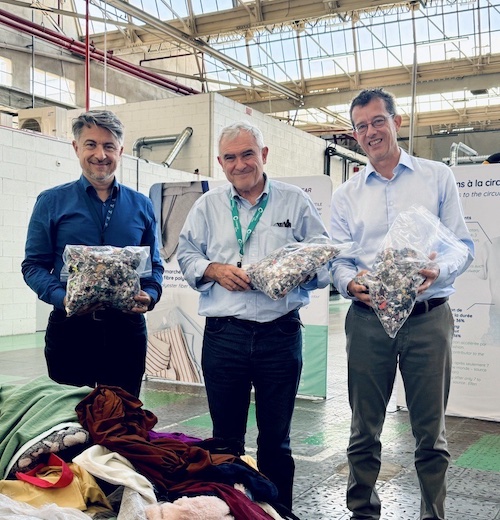
"CARBIOS is known as a biotech company, but we're also a player in the textile industry. We actively collaborate with innovative companies like Nouvelles Fibres Textiles to create a truly circular economy for textiles. As demonstrated in the packaging sector, the introduction of large-scale polyester recycling solutions will catalyze the structuring of collection and preparation infrastructures. Together, Nouvelles Fibres Textiles and CARBIOS demonstrate that the French industry continues to develop, thanks to the complementarity between the various links in the value chain, from collection and preparation to recycling", states Emmanuel Ladent, CEO of CARBIOS.
Eric Boël and Etienne Wiroth, Co-directors of Nouvelles Fibres Textiles, say: "The textile industry represents all the excesses of our over-consumption. One of the most ecologically, economically and socially effective responses is the circular economy, because it preserves resources and boosts industrial sovereignty and local employment. But the extraordinary variety of textiles is holding back large-scale deployment. New technologies, such as CARBIOS' enzymatic depolymerization and automated sorting by composition, are overcoming this obstacle. Above all, the links forged between the companies involved in this new circular value chain are helping to make this sector emblematic of an industry that does good for people and the planet, from producer to consumer."
France, a pioneer and European leader in the quest for textile circularity
Thanks to legislative initiatives such as the AGEC[1] (Anti-Waste for a Circular Economy) and “Climat et Résilience[2]” (Climate and Resilience) laws, support from ADEME[3], the Refashion eco-organization, and committed companies contributing to industrial sovereignty by combining innovation, ecological transition, “Made in France” and growth, France is today at the forefront of accelerating a circular economy for textiles.
At European Union level, separate collection of textile waste will be mandatory in member states from 1 January 2025. The European Union's strategy for sustainable and circular textiles aims to ensure that, by 2030, textile products are largely made from recycled fibers, and that incineration and landfill are reduced to a minimum[4].
[1] https://www.ecologie.gouv.fr/loi-anti-gaspillage-economie-circulaire
[2] https://www.ecologie.gouv.fr/actualites/loi-climat-resilience-bilan-2-ans
[3] The French Environment and Energy Management Agency (Agence de l'environnement et de la maîtrise de l'énergie)
[4] https://ec.europa.eu/commission/presscorner/detail/fr/qanda_22_2015



